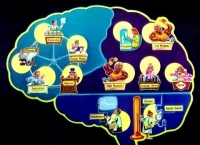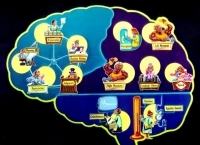
This white paper is the first of three parts on the complex functions of brain, what happens when an injury is acquired and how to care for and manage a life-changing brain injury.
BY LINDA SIMMONS, RN BScN
Senior Nurse Life Care Planner, Connect Medical Legal Experts
This document will increase the health care professionals understanding of Acquired Brain Injury (ABI). ABI is defined as damage to the brain that is acquired after birth. It can affect cognitive, physical, emotional, social, or independent functioning. ABI is an umbrella term used to describe all brain injuries. ABI can result from traumatic brain injury (i.e. accidents, falls, assaults, etc.) and non-traumatic brain injury (i.e. stroke, brain tumours, infection, poisoning, hypoxia, ischemia or substance abuse).
The motor vehicle related accident clients that we at Connect Experts see with ABI have often resulted from a Traumatic Brain Injury and thus ABI’s that have resulted from a TBI will be the focus of this document.
 It is a busy Monday night in the emergency department. You’ve arrived with your 2 year old child. You cannot get in to see your family doctor and she’s got a fever of 39.5 C, a sore throat and an earache.Your daughter’s crying and miserable. There is a long line up at triage. Eventually you are seen and assessed by a triage nurse and then sent to the waiting room. The waiting room is packed, your child is miserable and you are wondering how long are you going to have to wait for?
It is a busy Monday night in the emergency department. You’ve arrived with your 2 year old child. You cannot get in to see your family doctor and she’s got a fever of 39.5 C, a sore throat and an earache.Your daughter’s crying and miserable. There is a long line up at triage. Eventually you are seen and assessed by a triage nurse and then sent to the waiting room. The waiting room is packed, your child is miserable and you are wondering how long are you going to have to wait for?







